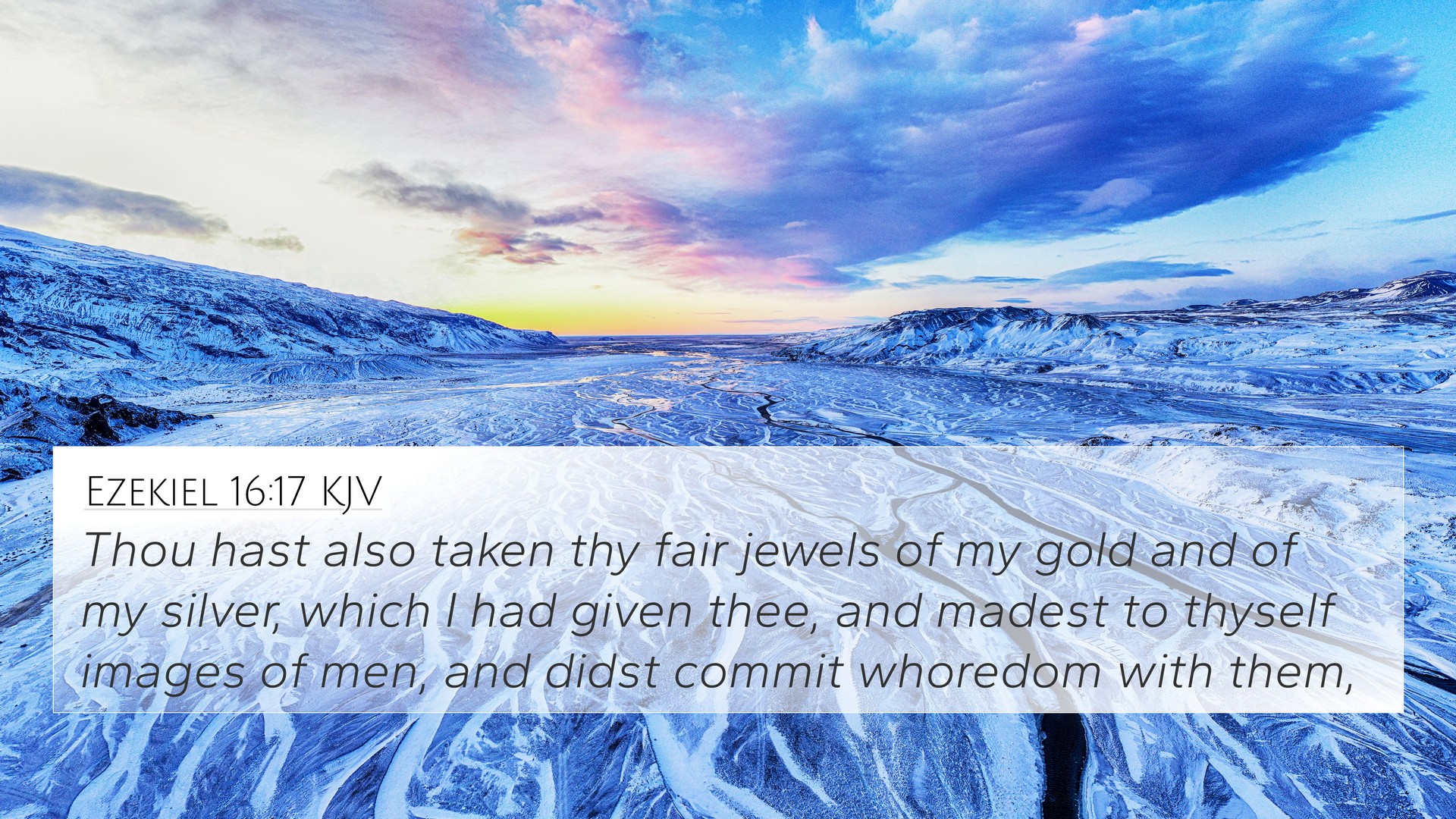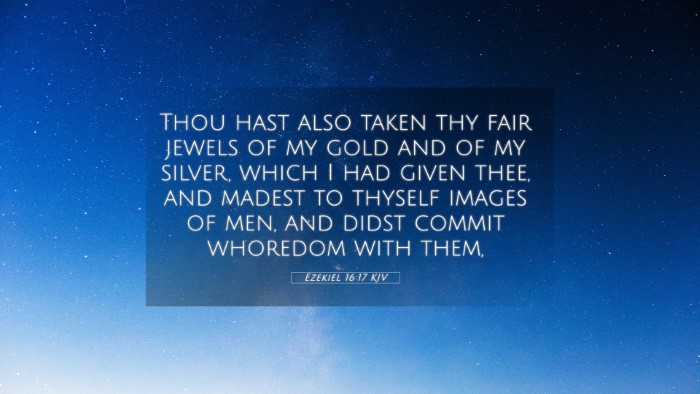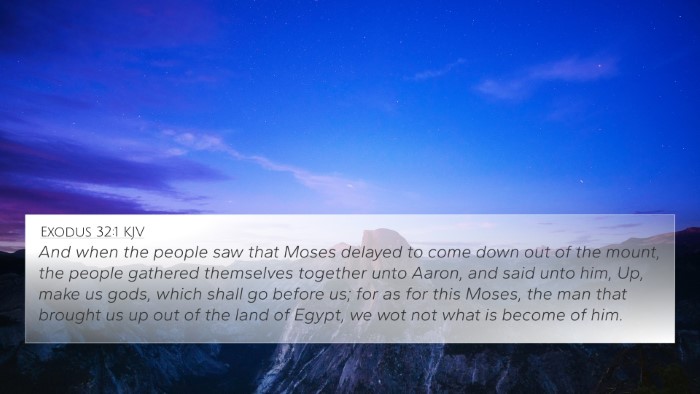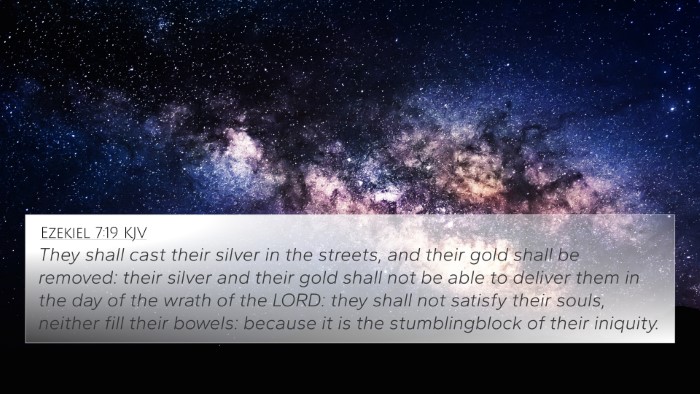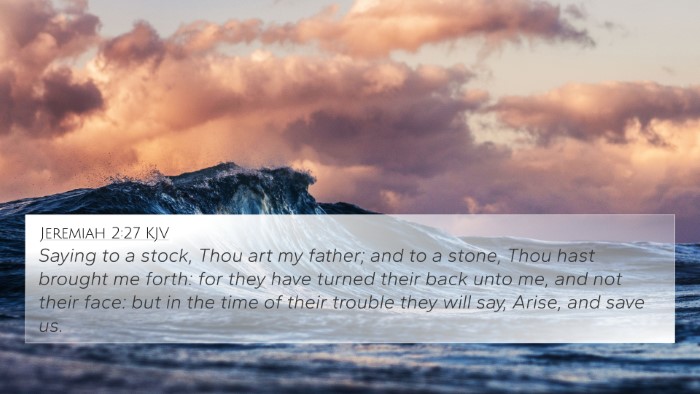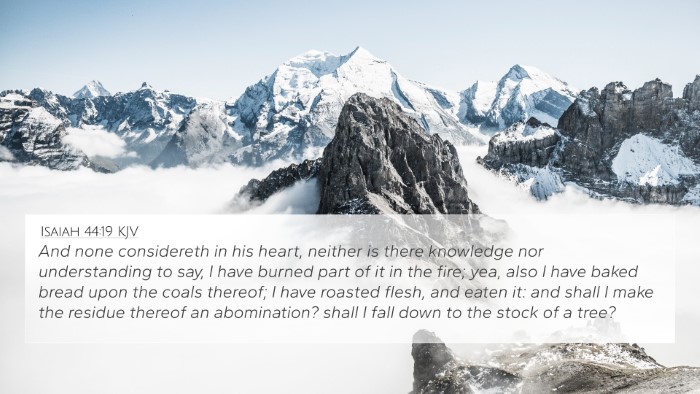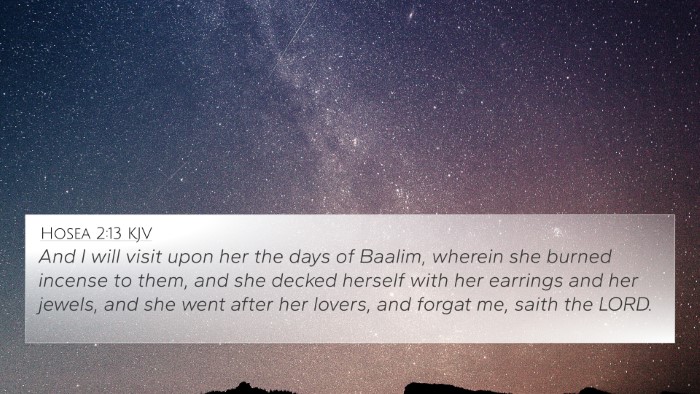Ezekiel 16:17 - Summary and Interpretation
Verse: "Thou hast also taken thy fair jewels of my gold and of my silver, which I had given thee, and made to thyself images of men, and didst commit whoredom with them." (Ezekiel 16:17, KJV)
Meaning and Insights
This verse presents a poignant critique of the actions of Jerusalem as depicted through the allegorical language of a marital relationship between God and Israel. It highlights several themes, including:
- Idolatry: The use of jewels, which symbolize blessings from God, in the creation of idols represents a profound betrayal of faith.
- Divine Relationship: The binding covenant between God and Israel is likened to a marriage, where Israel's infidelity through idolatry is reminiscent of a wife’s unfaithfulness.
- Consequences of Sin: This act of idolatry introduces a theme of judgement that runs throughout the book of Ezekiel.
Commentary Insights
Matthew Henry
Henry emphasizes the gravity of forsaking the true God for false idols. He argues that the 'fair jewels' highlight both the gifts received from God and the betrayal in using those gifts for sinful purposes. This serves as a warning against ingratitude and spiritual adultery.
Albert Barnes
Barnes notes that this verse indicates not merely the physical acts of idolatry but symbolizes a deeper covenantal unfaithfulness to God. He points out the tragic irony of using divine blessings to create what stands in opposition to the relationship with God.
Adam Clarke
Clarke interprets this verse as illustrating the artistic and ornamental nature of the idols that the Israelites crafted, which further signifies their deliberate turning away from God’s commands. This betrayal is seen as a fundamental violation of the covenant established between them and God.
Cross-References to Ezekiel 16:17
Several Bible verses relate closely to Ezekiel 16:17, illustrating themes of sin, idolatry, and God's covenant. Here are key cross-references:
- Jeremiah 2:13: "For my people have committed two evils; they have forsaken me the fountain of living waters, and hewed them out cisterns, broken cisterns, that can hold no water." - This highlights a similar theme of idolatry and an abandonment of God.
- Isaiah 30:22: "Ye shall defile also the covering of thy graven images of silver, and the ornament of thy molten images of gold: thou shalt cast them away as a menstruous cloth; thou shalt say unto it, Get thee hence." - A call to forsake idols.
- Hosea 4:12: "My people ask counsel at their stocks, and their staff declareth unto them: for the spirit of whoredoms hath caused them to err, and they have gone a whoring from under their God." - A direct correlation to spiritual unfaithfulness.
- Revelation 21:8: "But the fearful, and unbelieving, and the abominable, and murderers, and whoremongers, and sorcerers, and idolaters, and all liars, shall have their part in the lake which burneth with fire and brimstone: which is the second death." - The ultimate consequence of such unfaithfulness.
- 1 Corinthians 10:14: "Wherefore, my dearly beloved, flee from idolatry." - An admonition from the New Testament reinforcing the message against idolatry.
- Ezekiel 14:3: "Son of man, these men have set up their idols in their heart, and put the stumblingblock of their iniquity before their face: should I be enquired of at all by them?" - A direct reference to idol worship in the heart.
- Romans 1:25: "Who changed the truth of God into a lie, and worshipped and served the creature more than the Creator, who is blessed for ever. Amen." - Discusses the exchange of worship from the Creator to created things.
- Matthew 6:24: "No man can serve two masters: for either he will hate the one, and love the other; or else he will hold to the one, and despise the other..." - Highlights the impossibility of serving both God and idols.
- Galatians 5:17: "For the flesh lusteth against the Spirit, and the Spirit against the flesh: and these are contrary the one to the other: so that ye cannot do the things that ye would." - Illustrates the conflict between allegiance to God and succumbing to sin.
- Colossians 3:5: "Mortify therefore your members which are upon the earth; fornication, uncleanness, inordinate affection, evil concupiscence, and covetousness, which is idolatry." - This provides a New Testament understanding of idolatry.
Application and Reflection
The message of Ezekiel 16:17 serves as a timeless reminder of the danger that comes from idolatry in any form. Just as ancient Israel misused God’s blessings to create false idols, modern believers must reconsider how they value and employ the gifts God has graciously given them.
Encouraging Cross-Referencing
For those studying the Bible, engaging in cross-referencing can provide deeper insights into the interconnectedness of scriptures. Utilizing tools for Bible cross-referencing such as concordances can enhance understanding of biblical themes and reveal how various verses speak to one another.
Conclusion
As we reflect on Ezekiel 16:17, let us recognize the importance of fidelity in our relationship with God, to remain alert against the subtle lure of idolatry, and to turn our hearts back to the One who has given us every good thing.
